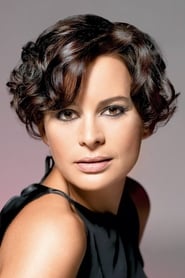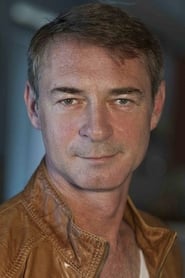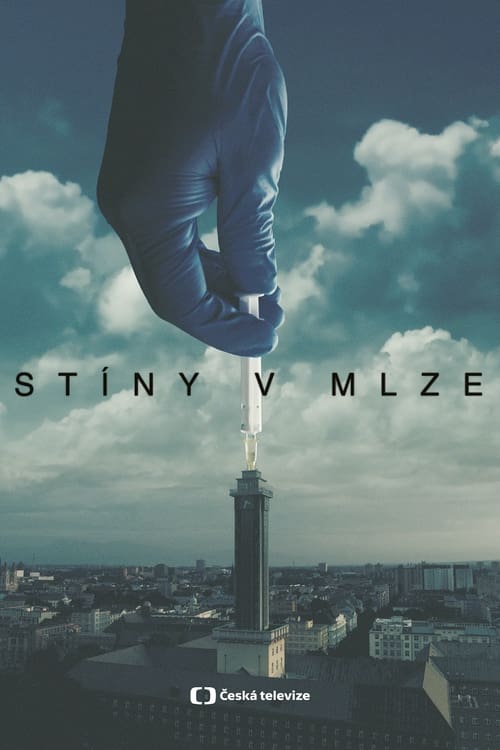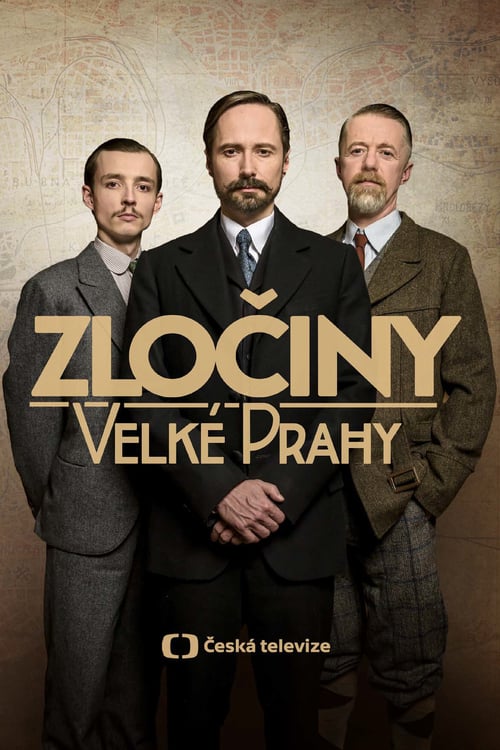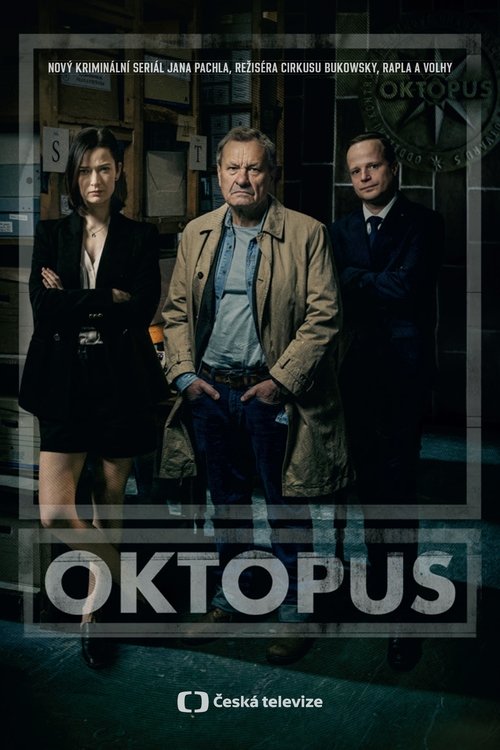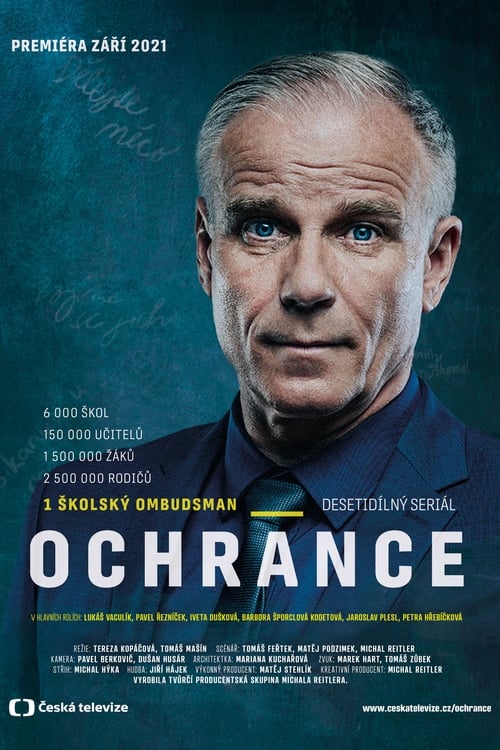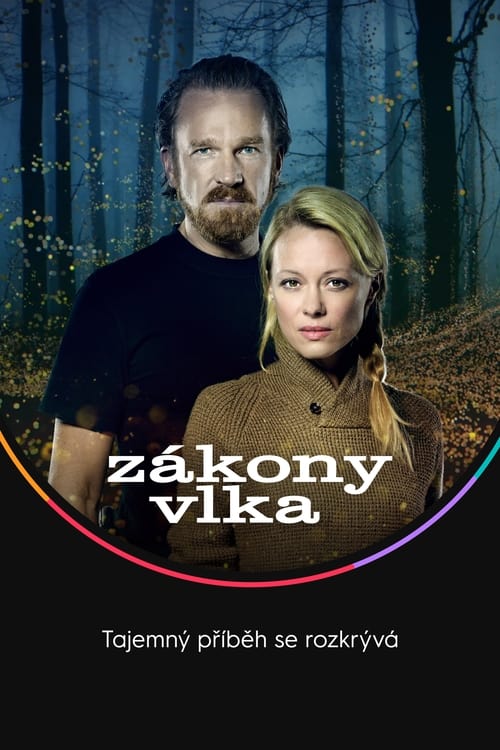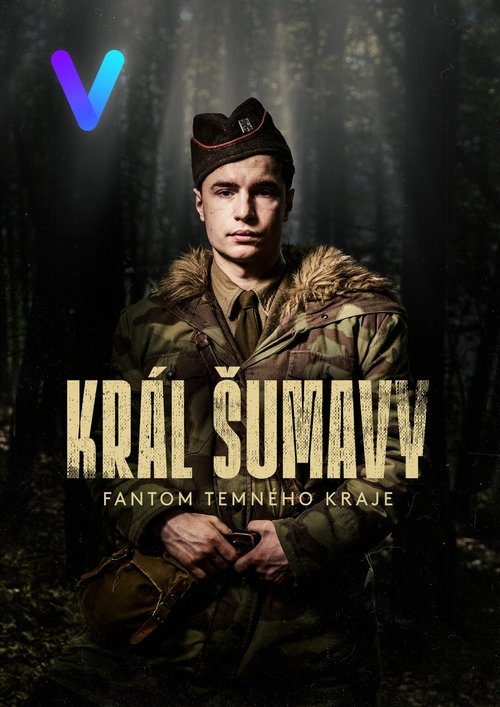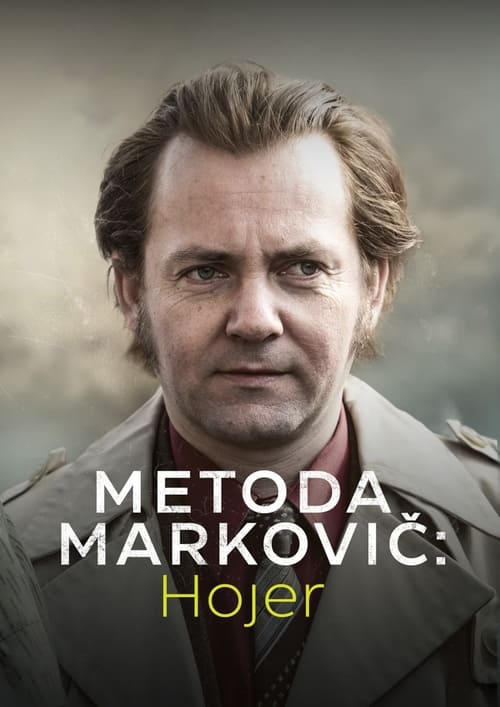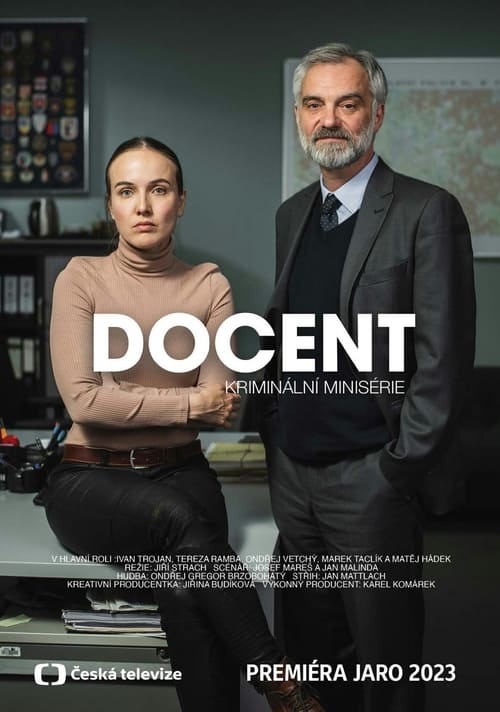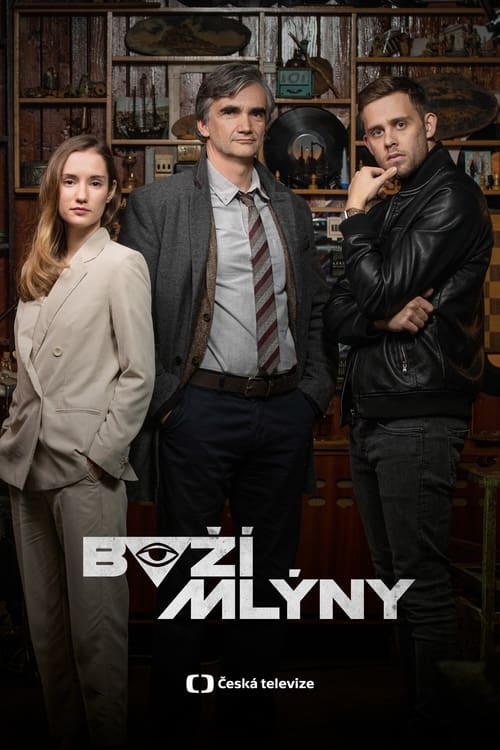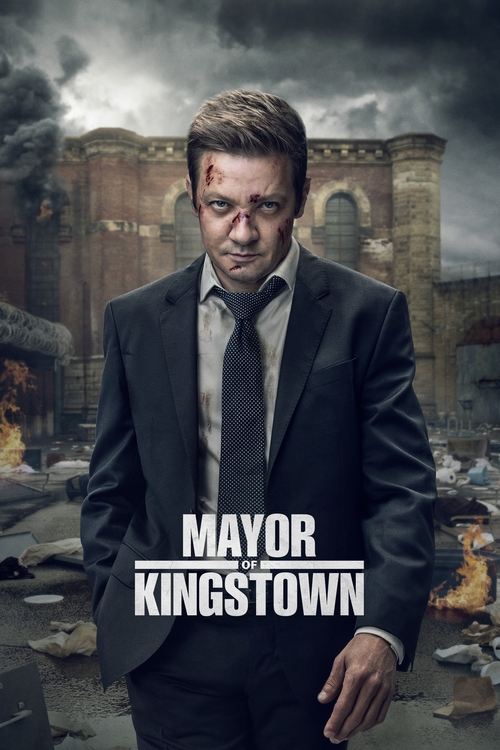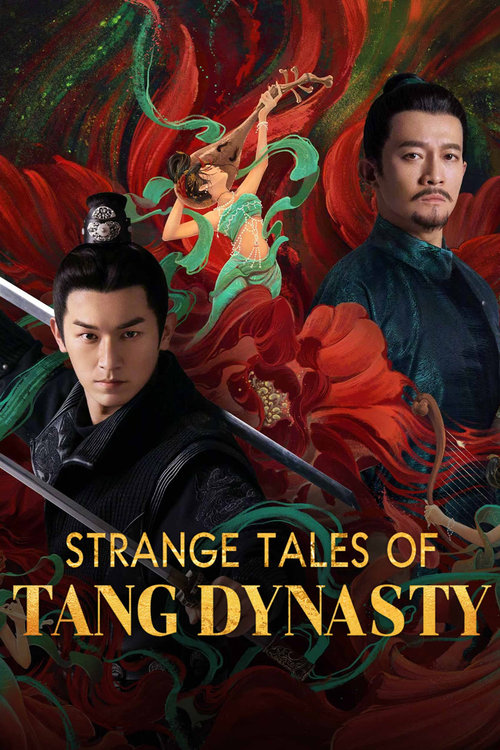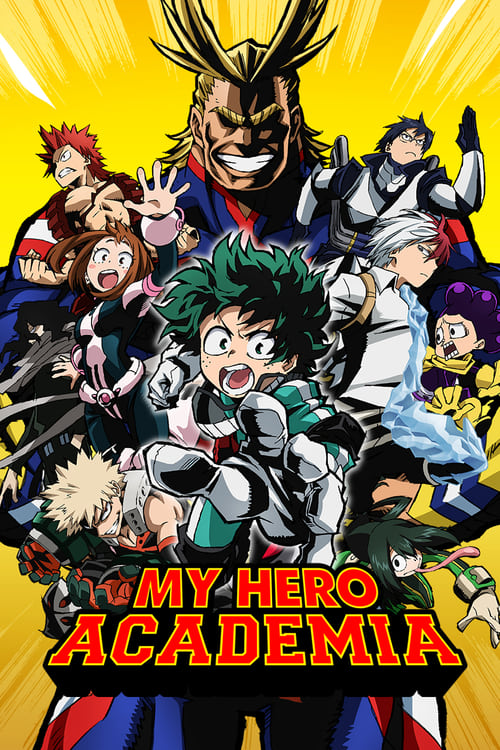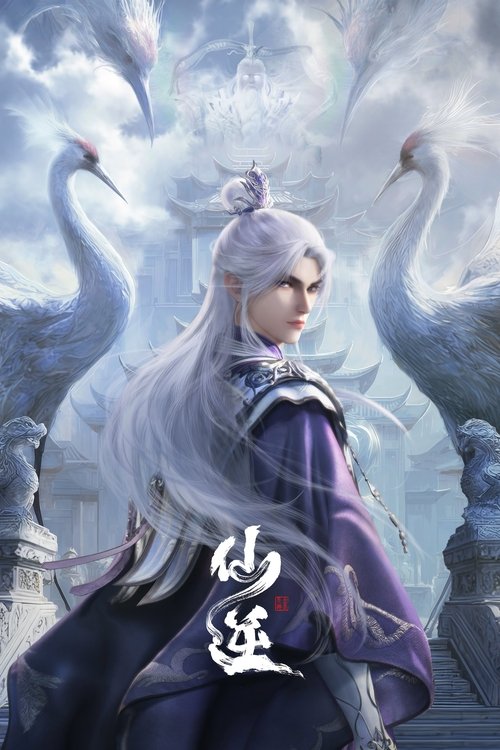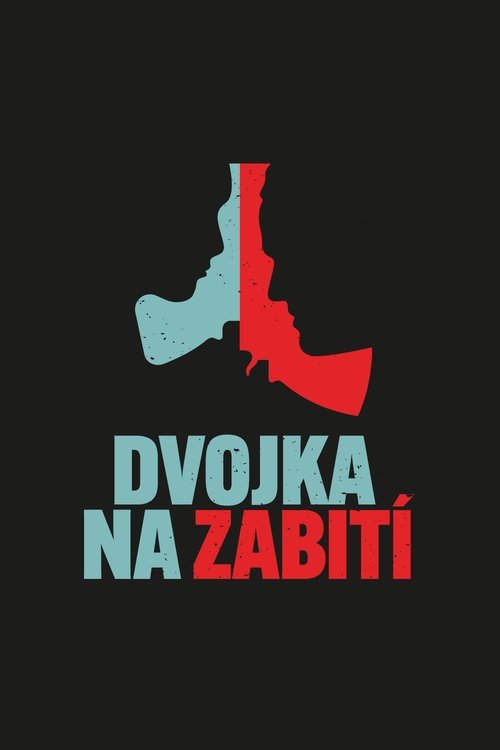
Ask Your Own Question
What is the plot?
In the opening scene of "Hlava Medúzy," we are introduced to the protagonist, a young woman named Klara, who is living a seemingly ordinary life in a small town. She works at a local café and has a close-knit group of friends. However, her life takes a dramatic turn when she receives a mysterious package containing an ancient artifact that resembles a medusa's head. This artifact is intricately designed, with a haunting beauty that captivates Klara, but it also emanates a strange energy that she cannot explain.
As Klara begins to research the artifact, she discovers that it is linked to a series of unsolved disappearances in the area. This revelation ignites her curiosity and fear, pushing her to delve deeper into the artifact's history. She visits the local library and meets an enigmatic historian named Marek, who becomes intrigued by her findings. Marek reveals that the medusa's head is said to possess supernatural powers, and he warns Klara about the dangers of meddling with such forces.
Klara's investigation leads her to a hidden underground society that worships the medusa. During a clandestine meeting, she learns that the society believes the artifact can grant immense power but at a terrible cost. The members are obsessed with finding the artifact, and Klara realizes that she is now a target. The tension escalates when she narrowly escapes an ambush set by the society, which leaves her shaken but more determined to uncover the truth.
In a pivotal moment, Klara confides in her best friend, Lena, about the artifact and the dangers surrounding it. Lena, initially skeptical, becomes supportive and agrees to help Klara. Together, they devise a plan to confront the underground society and retrieve more information about the medusa's head. Their friendship deepens as they face the growing threats together, showcasing their loyalty and bravery.
As Klara and Lena dig deeper, they discover that the society is led by a charismatic but ruthless leader named Viktor. Viktor is obsessed with the medusa's power and believes that Klara is the key to unlocking it. He confronts Klara, attempting to manipulate her into joining their cause. Klara, feeling the weight of the situation, refuses and stands her ground, which only intensifies Viktor's obsession with her.
The plot thickens when Klara experiences strange visions and nightmares related to the medusa. These visions reveal glimpses of the past, showing the artifact's dark history and the fates of those who sought its power. Klara becomes increasingly tormented by these experiences, struggling to maintain her grip on reality. Her emotional state deteriorates as she grapples with the artifact's influence, leading to moments of doubt and fear.
In a climactic confrontation, Klara and Lena infiltrate the society's lair during a ritual meant to harness the medusa's power. The atmosphere is charged with tension as they witness the members performing dark ceremonies. Klara's resolve is tested when she is faced with a choice: to embrace the power of the medusa or to destroy it. In a moment of clarity, she chooses to reject the artifact's allure, realizing that true strength lies in her friendships and moral convictions.
The confrontation escalates into chaos as Viktor and his followers attempt to seize Klara. A fierce struggle ensues, with Klara and Lena fighting against the society members. Klara uses her knowledge of the artifact to outsmart Viktor, leading to a dramatic showdown where she ultimately manages to destroy the medusa's head, shattering its power and freeing herself from its grip.
In the aftermath, Klara and Lena emerge from the ordeal changed but resolute. They reflect on their harrowing journey and the bonds they have forged. Klara finds solace in the knowledge that she has chosen her own path, free from the darkness that once threatened to consume her. The season concludes with a sense of closure, but hints at lingering mysteries and potential threats, leaving the door open for future developments.
What is the ending?
In the ending of "Hlava Medúzy," the main characters face the culmination of their struggles and conflicts. The protagonist, who has been on a quest for truth and redemption, confronts the antagonist in a tense showdown. The resolution leads to significant revelations about their pasts, and ultimately, the protagonist makes a sacrifice that alters the course of their lives. The fate of the characters is sealed in a way that reflects their journeys, with some finding closure while others are left with unresolved issues.
As the final episode unfolds, the scene opens in a dimly lit warehouse, where the protagonist, Anna, stands alone, her heart racing as she prepares for the confrontation she has long dreaded. The air is thick with tension, and the shadows cast by flickering lights create an ominous atmosphere. Anna's internal struggle is palpable; she is torn between her desire for revenge and her yearning for peace. Memories of her past flash before her eyes, reminding her of the loved ones she has lost and the choices that have led her here.
Suddenly, the door creaks open, and the antagonist, Viktor, enters with a smug confidence. He is flanked by his loyal followers, who eye Anna with disdain. Viktor's presence is suffocating, and Anna feels a surge of anger mixed with fear. She knows that this moment will define her future. As they exchange heated words, the dialogue reveals the deep-seated animosity between them, rooted in betrayal and loss. Anna's voice trembles with emotion as she confronts Viktor about the pain he has caused her and others.
The confrontation escalates into a physical struggle, with Anna fighting not just for her life but for her sense of justice. The choreography of the fight is intense, showcasing Anna's determination and resilience. She recalls her training, each move fueled by the memories of her fallen friends. The warehouse becomes a battleground, echoing with the sounds of struggle and desperation.
As the fight reaches its climax, Anna gains the upper hand, pinning Viktor to the ground. In this moment of triumph, she hesitates, grappling with the weight of her decision. The camera captures the conflict in her eyes, reflecting her internal battle between vengeance and mercy. Ultimately, she chooses to spare Viktor, realizing that killing him would not bring her peace. Instead, she delivers a powerful monologue about forgiveness and the cycle of violence, which leaves Viktor stunned and vulnerable.
The scene shifts to the aftermath of the confrontation. Anna walks away from the warehouse, her heart heavy but liberated. She has chosen a path of healing, but the scars of her past remain. The camera follows her as she steps into the light, symbolizing her journey toward redemption.
Meanwhile, Viktor is left behind, grappling with the consequences of his actions. His followers abandon him, and he is left alone in the darkness, a stark contrast to Anna's newfound hope. The final shot lingers on his face, a mixture of rage and realization that he has lost everything.
In the closing moments, the narrative shifts to Anna's friends, who have been waiting anxiously for her return. They embrace her, tears of relief streaming down their faces. The bonds of friendship are reaffirmed, and the group vows to support each other as they move forward together. The screen fades to black, leaving the audience with a sense of bittersweet resolution, as the characters face an uncertain future but with a renewed sense of purpose.
The fate of each main character is sealed in this final act: Anna emerges as a survivor, choosing to embrace life despite her losses; Viktor is left to confront his demons alone, a fallen figure in the wake of his own choices; and Anna's friends stand united, ready to face whatever challenges lie ahead, embodying the strength of their shared experiences.
Is there a post-credit scene?
In "Hlava Medúzy," Season 1, there is indeed a post-credit scene that adds an intriguing layer to the narrative.
As the credits roll, the screen fades to black before transitioning to a dimly lit room filled with shadows. The camera slowly pans across various artifacts and photographs pinned to a corkboard, hinting at a deeper conspiracy that has been brewing throughout the season.
In the center of the room, a figure is seen hunched over a desk, scribbling notes frantically. The camera zooms in, revealing the face of a character who has been a minor presence in the main storyline but is now shown in a more significant light. Their expression is one of intense focus and determination, eyes darting between the notes and the photographs, which depict key events and characters from the season.
Suddenly, the figure pauses, looking up as if sensing they are being watched. The tension in the air is palpable, and the viewer can feel the weight of secrets being held. The scene cuts to a close-up of a photograph that shows a pivotal moment from the season, but with a new detail that was previously unnoticed--a shadowy figure lurking in the background.
The figure at the desk mutters to themselves, "It's all connected," before the screen cuts to black again, leaving viewers with a sense of unease and anticipation for what might unfold in the next season. This post-credit scene effectively teases future plot developments and deepens the mystery surrounding the main characters and their intertwined fates.
What are the key events that lead to the climax of the season?
The climax is built upon a series of escalating events, including Anna discovering a hidden diary that reveals shocking truths about her mother, a confrontation with a local antagonist who seeks to protect the town's secrets, and a dramatic showdown that forces Anna to confront her fears and make pivotal choices about her future.
How does the setting influence the characters' actions and decisions?
The small, isolated town where the story takes place is steeped in mystery and folklore, creating an atmosphere of tension and intrigue. The characters' actions are heavily influenced by the town's dark history, which shapes their motivations and the choices they make, often leading them to question their own beliefs and loyalties.
What motivates the main character, Anna, throughout the season?
Anna is driven by a deep-seated need to uncover the truth about her family's past, particularly the mysterious circumstances surrounding her mother's disappearance. This quest for answers fuels her determination and often leads her into dangerous situations, revealing her resilience and vulnerability.
How does the relationship between Anna and her estranged father evolve in the season?
Initially, Anna's relationship with her father is strained, filled with resentment and unresolved issues stemming from her childhood. As the season progresses, they are forced to confront their shared trauma, leading to moments of tension but also unexpected bonding as they work together to unravel the mystery.
What role does the character of Viktor play in Anna's journey?
Viktor serves as both a mentor and a potential love interest for Anna. His knowledge of the local lore and his own personal struggles provide Anna with guidance, but his mysterious past also complicates their relationship, creating a tension between trust and betrayal.
Is this family friendly?
"Hlava Medúzy," season 1, contains several elements that may not be suitable for children or sensitive viewers. Here are some potentially objectionable aspects:
-
Violence: The show features scenes of physical confrontations and intense action sequences that may be graphic or unsettling.
-
Dark Themes: The narrative explores themes of betrayal, loss, and moral ambiguity, which could be emotionally heavy for younger audiences.
-
Psychological Tension: There are moments of psychological distress and manipulation that may be disturbing, particularly for sensitive viewers.
-
Mature Language: The dialogue includes strong language and adult conversations that may not be appropriate for children.
-
Supernatural Elements: The presence of supernatural occurrences and creatures may be frightening for younger viewers.
-
Emotional Turmoil: Characters experience significant emotional struggles, including grief and despair, which could be upsetting.
These elements contribute to a darker tone that may not align with family-friendly viewing.



